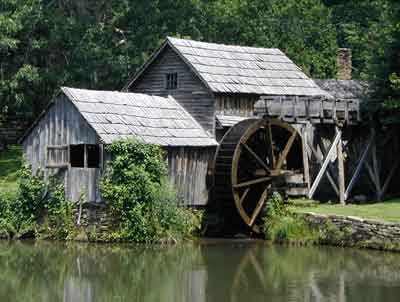
My Traditional Metal Casting class has one more session, but yesterday evening was the last casting night. Which means I'm done pouring molten metal in above 80F temperatures wearing a silver jacket. Which means I don't lose ten pounds of sweat once a week.
Not that I'm complaining. I very much enjoy pouring molten metal. And it's not a pyro thing either. It's a very relaxing activity. Some people meditate or play the piano or collect and examine stamps. I pour hot molten metal.
I'm not sure it is a guy thing. I've had female students who feel the same way I do about it. It's not thrilling or exciting or an adrenaline rush, or at least not after the first time. It is possible that the heat has a lot to do with it. It is a rather warm and toasty experience.
I do know what is a guy thing. The book I'm reading now "Nuts and Bolts of the Past: A History of American Technology, 1776-1860" by David Freeman Hawke. You laugh at what a guy book that is, but no, you are reading the prose of a guy who read, and would readily re-read "The History of Coal".
I will, without a doubt, find and read books from this book's bibliography, like "Tools for the Job: A Short History of Machine Tools" by L.T.C. Holt, or "Studies in the History of Machine Tools, by Robert S. Woodbury, or "Early Engineering Reminiscences" by George Escol Sellers.
It is a time, a time when mechanicians roamed the land, which does more than slake my curiosity. I suspect that I and my family were born two hundred years too late. We would have fit in well with those early engineers and technologists.
One of the more intriguing books is "The Machine in the Garden: Technology and the Pastoral Idea in America", by Leo Marx.
Early America, America east of the Appalachians, blessed as it was with a plenitude of rivers and streams, was at first a Green Industrial America. True, there was no shortage of wood to burn, but Americans back then saw it more fit to make things from wood, seeing as we had not quite reached the age of steel. And given the availability of water power - water in rivers and streams that were not as sluggish as in the British Isles, but not so wild as rivers to the West - it was only inevitable that factories and machines were powered through the use of the millrace and the waterwheel.
And so industry, run by water, was a bit less concentrated in large towns. Even the small hamlets and villages had some form of industry run by water. And these industries, not producing thick choking blankets of coal or wood smoke, tended to be light open airy affairs - almost quaint.
What then, was the problem? Why the eventual reliance upon the stationary steam engine? Well, quite simply, the seasons were the problem. Winter, Spring, Summer, and Fall. Or, in more pragmatic terms, Ice, Flood, Drought, and Choke. (Choke being the annual silting, branch and leaf dropping which clogged dams and spillways).
A shop or factory or mill usually could not depend upon a turning waterwheel for more than 160 days a year. I suppose it was inevitable that steam and coal and hydrocarbons should usurp the renewables.
Still it is interesting that we turn to them again. My understanding is that, as of 2004, more than half the generating stations in America are renewables. A step in the right direction regardless of your politics?
Perhaps. I'd like to see better and more efficient use of what we have. That would be step in the right direction.

Still it is interesting that we turn to them again. My understanding is that, as of 2004, more than half the generating stations in America are renewables. A step in the right direction regardless of your politics?
ReplyDeleteNot even close John. Renewables account for ~6.5%.
I'd like to see better and more efficient use of what we have.
ReplyDeleteThat's where ALL the shovel-ready opportunity is at right now and for the forseeable - and as far as opportunities go - it's HUGE. All that's required is a mass movement and transformation of popular consciousness such that status and coolth is associated with conspicuous efficiency rather than the current state preoccupation with with conspicuous overconsumption....,
Hey CNu,
ReplyDeleteThank you for posting and correting my figures. Don't where I got the info from, but you are right. Must have been an optimistic article I read.